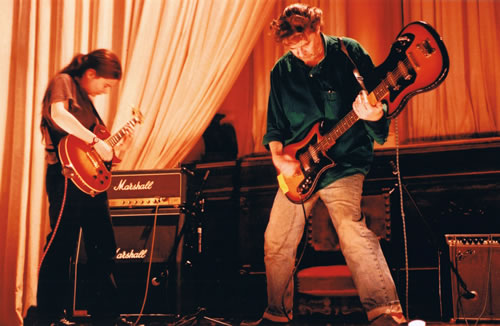Is the question are there classical composers, or are they writing symphonies? If it is the first question then obviously the answer is yes, and many writing great music. Maxwell Davies, Stockhausen Boulez, Carter, Birtwistle, Rihm, Gubaidulina to name some senior figures who are alive, or Ligeti who has just died are all challenging artists, writing music that will last. If your taste is for more tuneful try Part, Kancheli, Silvestrow etc etc - the list of worthwhile names is long, and your enjoyment is limited only by your own imagination.
If it is the second question as to whether these people are writing symphonies, then the answer is not so often (although hasn't Maxwell Davies written 8 of them), as the form is possibly seen as not so important these days, and certainly not the only vehicle for IMPORTANT STATEMENTS in that holy German high art sort of way. I think that one of the last great symphonies written in the twentieth century was Webern's, and that is a statement in itself about the death of the form as it was previously understood (or maybe it was Messiaen's Turangalila Symphony, but the point remains). The term symphony probably still contains implications of high minded gravitas and a certain conservatism of approach, but in today's musical world who knows what may result from calling a piece a symphony...




